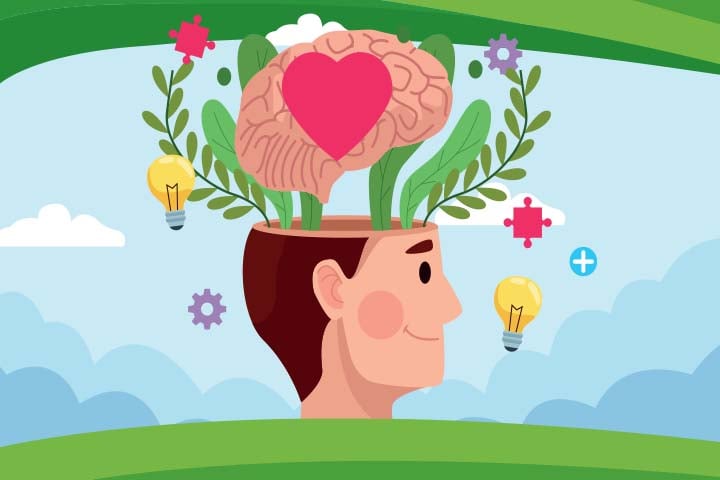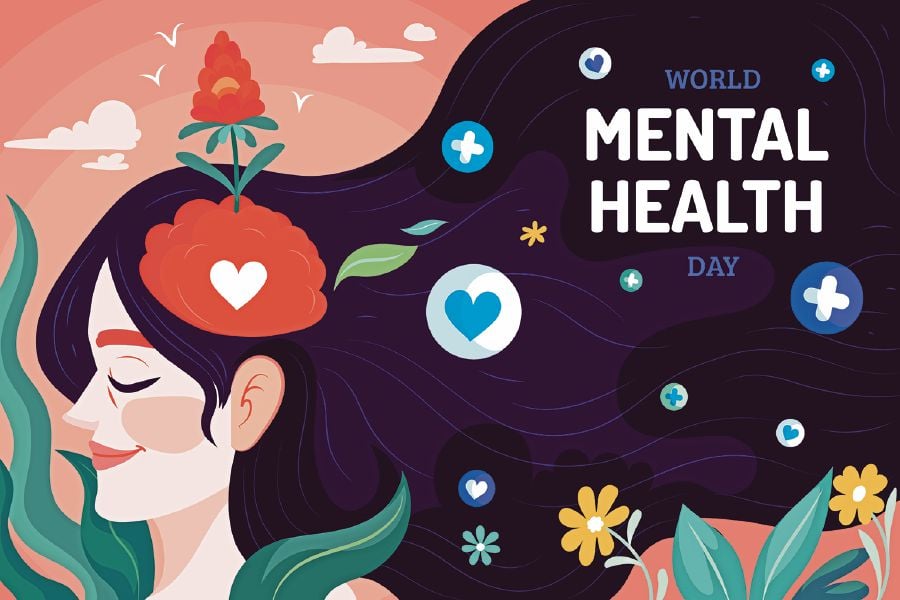Understanding Mental Health: The Key to Well-being
5 min read
Understanding Mental Health is an essential aspect of overall well-being, yet it remains an area that is often misunderstood or overlooked. As the world becomes increasingly fast-paced and demanding, mental health challenges are becoming more prevalent across all age groups. It is crucial to recognize that mental health is not just the absence of mental illness but a state of emotional, psychological, and social well-being. This article will explore the importance of mental health, common mental health issues, and how to foster a positive mental health environment.

Understanding Mental Health, What is Mental Health?
Mental health refers to a person’s emotional, psychological, and social well-being. It affects how people think, feel, and act, and also determines how individuals handle stress, relate to others, and make choices. Mental health is vital at every stage of life, from childhood and adolescence through adulthood. It plays a critical role in shaping one’s ability to cope with life’s challenges, pursue goals, and build meaningful relationships.
Mental health encompasses a broad spectrum, ranging from everyday emotional well-being to more serious conditions like anxiety, depression, or bipolar disorder. It is essential to acknowledge that mental health is dynamic; it can fluctuate depending on various factors such as stress, relationships, environment, and physical health. Just as we care for our physical health, taking care of our mental health is equally important.
Understanding Mental Health, The Importance of Mental Health
Understanding Mental Health, Good mental health is fundamental to leading a fulfilling and productive life. It helps individuals manage their emotions, build resilience, and effectively navigate challenges. People with strong mental health tend to have better relationships, higher productivity, and a more positive outlook on life. Moreover, mental health is closely linked to physical health—mental well-being supports physical health and vice versa.
When mental health is compromised, it can have a profound impact on daily functioning. Mental health disorders can hinder a person’s ability to work, study, and engage in social activities. These disorders can also exacerbate physical health issues such as chronic pain or heart disease. Conversely, a healthy mind contributes to improved immune function, better sleep quality, and overall physical health.
Common Mental Health Disorders
Understanding Mental Health, Several mental health conditions are common across various age groups and demographics. Understanding these conditions can help reduce stigma and encourage individuals to seek help when needed.
1. Depression
Depression is one of the most prevalent mental health disorders globally. It is characterized by persistent feelings of sadness, hopelessness, and a lack of interest in activities that were once enjoyable. Depression can interfere with daily functioning, making it difficult to work, maintain relationships, or even get out of bed. While depression can be triggered by various life events, it can also occur without an obvious cause.
2. Anxiety Disorders
Anxiety disorders are marked by excessive worry or fear that can interfere with daily life. These disorders can take several forms, including generalized anxiety disorder, panic disorder, and social anxiety disorder. People with anxiety often experience physical symptoms such as a racing heart, sweating, or dizziness when confronted with anxiety-provoking situations. These disorders can severely impact one’s ability to function, especially if left untreated.
3. Bipolar Disorder
Bipolar disorder is a mood disorder characterized by extreme shifts in mood, energy, and activity levels. Individuals with bipolar disorder experience episodes of manic highs, where they feel euphoric and overly energetic, and depressive lows, where they may feel deeply sad and lethargic. The fluctuations in mood can significantly impact work, relationships, and general well-being.
4. Obsessive-Compulsive Disorder (OCD)
Obsessive-compulsive disorder is characterized by intrusive thoughts (obsessions) that trigger anxiety and compulsive behaviors (compulsions) aimed at reducing the anxiety. For example, someone with OCD might feel compelled to wash their hands repeatedly or check doors and locks multiple times. OCD can be debilitating if left untreated, causing significant distress and impairing daily functioning.
How to Improve and Maintain Mental Health
Understanding Mental Health, Maintaining good mental health is an ongoing process, and there are several strategies that can help improve and preserve mental well-being.
1. Build and Maintain Strong Social Connections
Having supportive relationships is one of the most effective ways to maintain good mental health. Whether it’s family, friends, or colleagues, social connections provide emotional support, reduce feelings of loneliness, and increase feelings of belonging. People who have strong social support are more likely to cope effectively with stress and experience a higher quality of life.
2. Exercise Regularly
Physical activity has been shown to have a profound impact on mental health. Exercise releases endorphins, the body’s natural mood boosters, and helps reduce symptoms of anxiety and depression. Even regular walks or light exercises can improve mood, reduce stress, and enhance cognitive function. Incorporating physical activity into daily life can promote both physical and mental well-being.
3. Manage Stress Effectively
Chronic stress can take a toll on mental health, leading to burnout, anxiety, and depression. It is essential to find effective ways to manage stress, such as practicing relaxation techniques (e.g., deep breathing, meditation, or yoga). Taking time for self-care, setting healthy boundaries, and prioritizing rest can help individuals reduce the impact of stress on their mental health.
4. Seek Professional Help When Needed
Just as we see a doctor for physical ailments, seeking professional help for mental health concerns is crucial. Psychologists, counselors, and psychiatrists can offer support through therapy, medication, or a combination of both. Therapy, such as cognitive-behavioral therapy (CBT), is highly effective for treating conditions like anxiety and depression. It’s important to reach out for help when mental health challenges arise, as early intervention leads to better outcomes.
5. Prioritize Sleep and Nutrition
Adequate sleep and proper nutrition play vital roles in maintaining good mental health. Lack of sleep can contribute to irritability, stress, and difficulty concentrating, while a balanced diet fuels the brain and body. Establishing a healthy sleep routine and making nutritious food choices can positively affect mental and emotional well-being.
The Stigma Surrounding Mental Health
Understanding Mental Health, Despite the growing awareness of mental health issues, stigma still exists, preventing many people from seeking help. Societal views on mental health disorders often associate them with weakness or personal failure, but this is far from the truth. Mental health challenges are common and can happen to anyone, regardless of age, gender, or background. Reducing the stigma around mental health is essential to creating a supportive environment where individuals feel comfortable seeking help and sharing their experiences.
Conclusion
Understanding Mental Health, Mental health is just as important as physical health, and caring for it is a lifelong commitment. By understanding the importance of mental health, recognizing common mental health conditions, and taking proactive steps to care for our emotional and psychological well-being, we can lead healthier, more fulfilling lives. Seeking help when needed, building strong social networks, and practicing self-care are key strategies in maintaining mental health. As we continue to prioritize mental well-being, we can break the stigma and create a world where everyone feels supported in their mental health journey.
Read More : The Importance of Mental Health: Nurturing Well-being and Resilience





